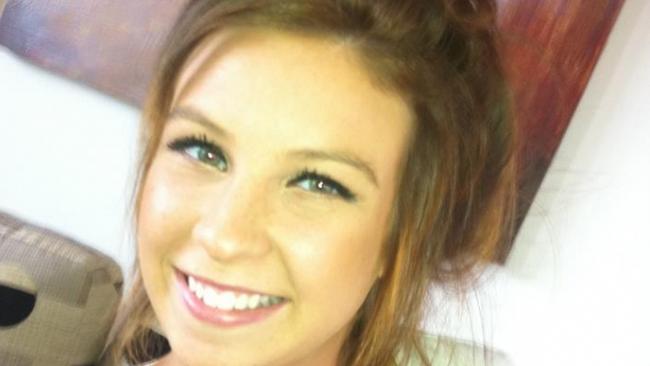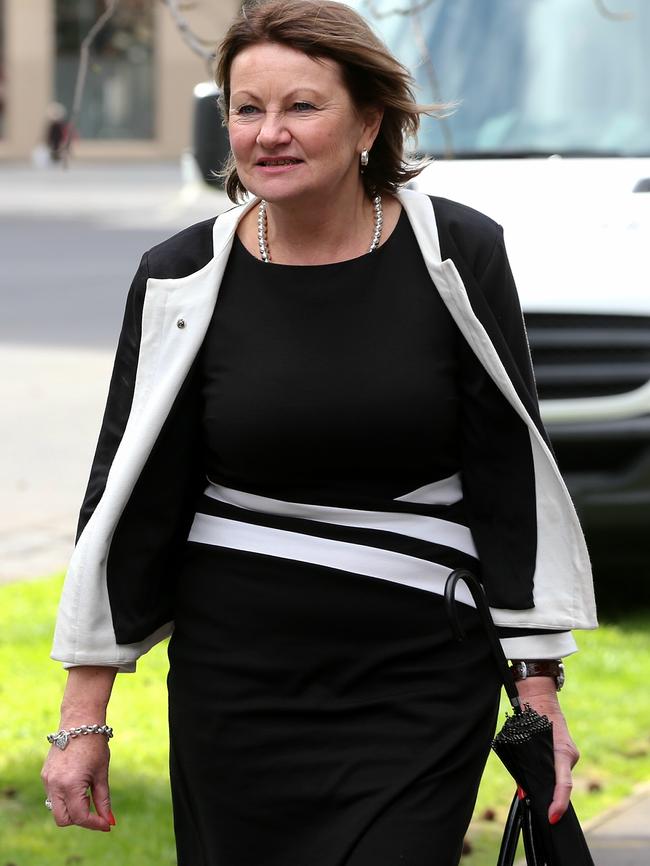Sarah Cafferkey inquest: killer Steven James Hunter had ‘satisfactory’ parole record
THE man who murdered Sarah Cafferkey told a Corrections case worker he would put women who reported him to authorities in a “box” in the lead-up to her death, an inquest has heard.

Law & Order
Don't miss out on the headlines from Law & Order. Followed categories will be added to My News.
THE man who murdered Sarah Cafferkey told a Corrections case worker he would put women who reported him to authorities in a “box” in the lead-up to her death, an inquest has heard.
Psychologist Matea Doric noted career criminal Steven James Hunter displayed hostility towards women, was excited by violence and had been in a fight right before his final appointment — two weeks from the expiry of his parole in October, 2012.
The critical observations were contained in a final report written after Hunter bashed and stabbed Ms Cafferkey, 22, at his Bacchus Marsh unit on November 10.
Her body was found in a wheelie bin at a point cook home nine days later.
Fiona McLeod SC, acting for Ms Cafferkey’s family, read the damning case notes as she questioned Corrections Victoria official Roderick Wise on Hunter’s behaviour during parole.
Ms Doric wrote Hunter was disengaged and elusive during appointments and “acknowledged he’d be willing to reoffend, even kill, in order to protect his friends.”
She also said that if he were in a fight with someone he would make sure they were “put in (a) box” if they went to authorities, particularly referring to women.
“He’s likely to engage in aggressive and violent behaviour to gain control,” Ms Doric wrote.
Mr Wise, the first of at least six witnesses in the three-day inquest acknowledged that while Hunter appeared to comply with his parole conditions, including surrounding drug and alcohol use, he could have also been posturing.
“I think that there was probably an element of him putting up a facade,” the Deputy Commissioner of Operations said.
Hunter murdered Ms Cafferkey nine days after his parole over the 1986 murder of an 18-year-old schoolgirl expired. He is serving life in prison.
Earlier in the hearing Mr Wise said that while Ms Cafferkey’s death was “tragic”, Hunter’s “performance on parole was certainly satisfactory.”

“Whether he was 100 per cent truthful in all of that is open to question.
“(But) he gave them (corrections officers) no reason to believe in any alcohol or drug use and that his risk to the community had escalated,” Mr Wise said.
The court heard he had also incurred a speeding fine after his April 2011 release and was associating with other convicted criminals while on parole, which his case manager was aware of.
The three-day coronial inquest is examining the monitoring of Hunter while he was on parole, including the conditions placed on his parole and any failure by police to communicate breaches of his parole to Corrections Victoria.
Allegations that Hunter used and trafficked drugs and fired a Taser at a girlfriend while on parole were not known until after the already-convicted killer murdered Ms Cafferkey.
The court heard that before his release from prison, Hunter was assessed as having a low risk of reoffending, which was then overruled to moderate.
Mr Wise said that under the new screening tool Hunter would have been placed in a high category, but because he was classed as a serious, violent offender, the rehabilitation plan would stay the same.
He also said that the old assessment tool did not specifically take into account Hunter’s lengthy and serious criminal history, which included crimes such as drug trafficking and kidnapping.
He said the system was “inadequate in terms of identifying the gravity of reoffending.”
